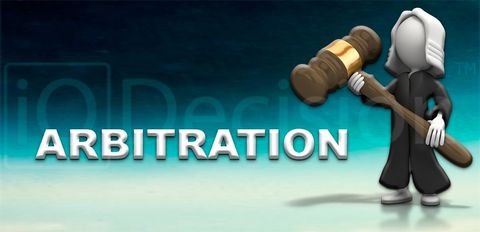Businesses all over the world have increased their use of arbitration, while, at the same time, expanding the types of disputes that are subject to arbitration. Entrepreneurs who decide to resolve a commercial dispute through arbitration in Korea should be aware of the basic requirements for arbitration awards in that jurisdiction. First of all, it is necessary to pay attention to the fact that the written award signed by all arbitrators, without exception, must also indicate the reasons for which the award is based. That is, the decision is valid only if it is reasoned.
A solitary arbitrator can resolve the dispute if the parties agree to it.
Both parties are bound by law to accept the decision of the arbitrator. However, an arbitration award in Korea, whether national or international, can be appealed. The only way for a party to challenge the decision is to sue to reverse the decision.
Dispute Resolution in Korea: Recognition and Enforcement of Awards
The recognition and enforcement of an arbitral award in Korea is governed by both local law and international treaties ratified by Korea.
The jurisdiction is also known for adhering strictly to the language of the UNCITRAL Model Law in the process of resolving conflicts through arbitration.
Korea is a party to the ICSID Convention and numerous regional or bilateral investment promotion and protection agreements that guarantee enforcement of arbitral awards.
However, it is important to note that there are no separate courts in the jurisdiction that deal with the recognition and enforcement of arbitral awards. The implementation of the functions of assistance and control in relation to international commercial arbitration in the Republic of Korea, in particular, consideration of applications for cancellation of an arbitral award and its enforcement, is entrusted to the lower level of courts of general jurisdiction, which creates certain problems with the quality of judicial decisions on these issues, with the formation of a single judicial practice and, taking into account the appeal and cassation appeal, it takes a lot of time (up to several years) to make a final court decision. Discussions are currently underway to convince interested government agencies of the advisability of transferring these functions to the appellate level of the courts.
Interim Measures
In Korea, the following interim measures are applied: preliminary investment, preliminary judicial seizure of property in dispute and preliminary injunction to establish status.
Any party wishing to recognize an interim measure ordered by the arbitral tribunal may submit an application to the court requesting approval of the measure. National legislation prescribes an exhaustive list of situations in which recognition or enforcement of an interim judgment may be refused.
There is no general provision in Korean law governing the recognition and enforcement of arbitral awards against foreign states.
A foreign country (or its assets) is generally considered invulnerable to the jurisdiction of the Korean courts if:
- the state has not consented to the jurisdiction of the Korean courts or waived its immunity from jurisdiction in an international treaty, arbitration agreement, any other written agreement or oral statement made in the Korean courts;
- the proceedings are about the settlement of commercial disputes, not sovereign acts.
Professional assistance
The IQ Decision UK professionals have analyzed some aspects of dispute resolution in the Republic of Korea. It is important that everyone entering into arbitration in this jurisdiction understands exactly what they are taking on. In other words, to be clear that everyone understands that arbitration is legally binding. If you have any commercial disputes with a Korean counterpart, our experienced specialists will provide assistance at all stages of the dispute to ensure that you are truly protected and that a foreign jurisdiction does not affect your interest. Reach out to us for a consultation using the feedback form below.

















